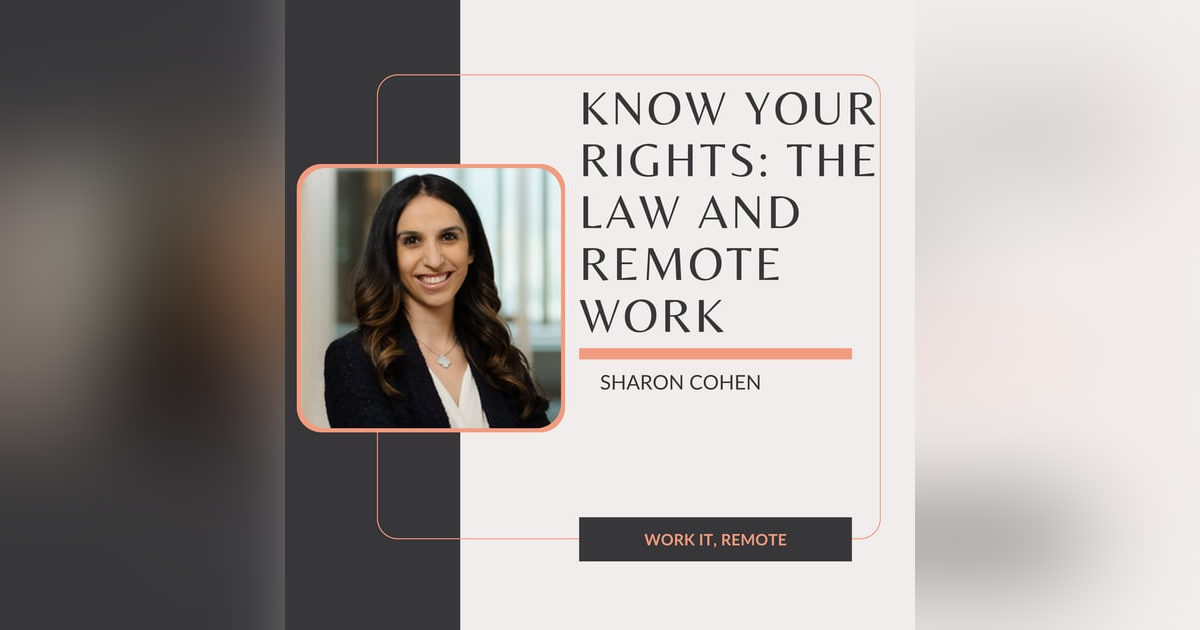E2: Know your Rights: The Law and Remote Work

In this episode, I sit down with employment law expert Sharon Cohen to discuss the evolving landscape of remote work and employee rights. Sharon, a partner at Davis and Gilbert in New York, shares insights from her extensive experience advising employers on various aspects of employment law. Sharon explains how remote workers can protect themselves, the importance of understanding state-specific employment laws, and offers practical advice for maintaining professionalism in a remote work environment. The discussion also explores predictions on future changes in employment law after the results of the recent U.S. election. Connect with Sharon at https://www.dglaw.com/people/sharon-cohen/
Please note that with respect to the federal overtime exemption discussed at the 29 minutes mark, the lower federal salary threshold will now apply, however higher state salary thresholds would still apply.
Visit www.workitremote.com to stay connected to the Work It, Remote community!
@WorkItRemote on Instagram and YouTube




